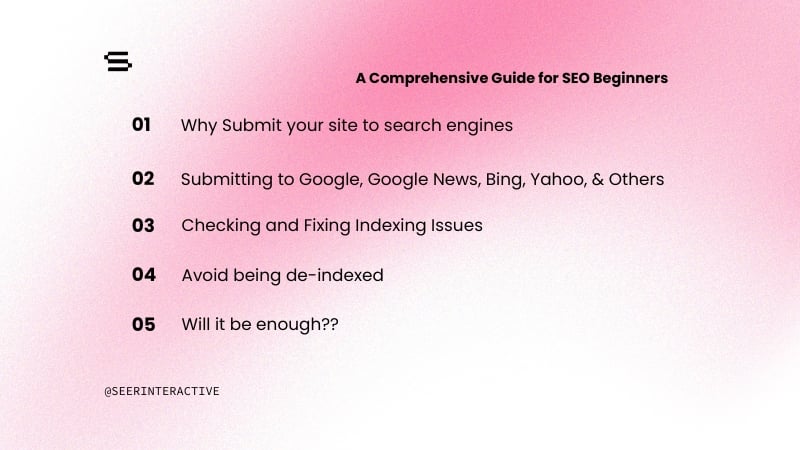The recent press release of the US DOJ and European Commission clearing the Yahoo/MSN Search Alliance has left a twinkle in my eye as a PPC Account Manager. In case you missed it, here are the highlights of the deal:
- Yahoo SERPS will be powered by Microsofts search algorithm.
- Rather than managing Yahoo and MSN paid search accounts in two separate interfaces, the MSN adCenter interface will power Yahoo paid search accounts as well.
- By combining the Yahoo and MSN networks, market share is expected to grow to an estimated 150 million searchers, a whopping 62% increase in search volume (estimates provided by Yahoo).
Yahoo and MSN partnering in paid search is super exciting because, to be frank, both of the current interfaces and reporting capabilities leave much to be desired. For example, according to an email I received from Yahoo explaining the deal, one of the featured benefits will be having one interface in order to help achieve a better ROI, which leads me to item #1 in my wish list!
Wish #1: Revenue Tracking
I would like to know exactly how I will be able to achieve a better ROI when Im now working with a platform that does not support revenue tracking (i.e. does not support ROI reporting)?
The Yahoo paid search interface reports quite nicely on Revenue and ROAS metrics:

The MSN Interface, however, does not report on neither revenue nor ROAS:

Unless MSN and Yahoo get their acts together and support e-commerce KPIs, we will have to pull revenue data from both Yahoo and MSN via Google Analytics. This makes our job harder, not easier. See below the three step process we will not have to repeat over and over again to measure revenue metrics.

Wish #2: Increased Capacity for Negative Keywords in Multiple Match Types.
According to the MSN adCenter learning center, the following restrictions are placed on using negative keywords:
- Negative keyword lists are limited to 1,022 characters. You can have up to 1,022 characters at the keyword level, ad group level and campaign level.
- Each negative keyword can contain up to 100 characters.
- Negative keywords or negative keyword phrases must be separated by commas.
- Including the commas, the entire negative keywords list cannot exceed 1,022 characters.
My main beef with the list above is the character limit. For example, I have a B2B client that offers a GIS and demographic mapping service. Here is an example of why a high volume of negative keywords is vital for this account:
- Data is unavailable only for certain years (2000-2011 projections, for example). As it happens, there are lots of queries like "1850 united states demographic data". In AdWords, the easy fix was to negative match every year prior to 2000. For this particular account, I have around 12,000 characters in my campaign negatives. MSN's negative keyword character limit would make this impossible.
Wish #3: Reporting by Day of Week
Google, Yahoo and MSN were all kind enough to allow us marketers to adjust our bids by hour and day of the week. While you may have a suspicion as to when your audience is searching the most, youll never know that for sure unless you harvest some data and really dive deep yourself. Google wraps this up in a beautiful little package by offering Day of Week reporting in the AdWords interface.

Superb! In just a few minutes, Ive discovered that Mondays are my most expensive days and have the poorest conversion rates, while Wednesdays perform best and deserve the bulk of the budget. Now I just have to check on my MSN/Yahoo account to optimize! Day of week reporting is a simple enough feature. I mean, every engine definitely has it....right?

Wrong. Sorry folks. If you want to see which day of the week performed better on MSN/Bing/Yahoo in the future, youll have to do it the good old fashioned way. Pull the report by day, use Excels Weekday formula to change all of the dates to a number, find-replace that number to the correct day of the week, subtotal and pit those numbers against Revenue and ROAS numbers (see Wish #1).
Wish #4: Multiple Browser Capability
Microsoft never taught AdCenter how to play well with others. As Im sure many of you have found, the AdCenter interface doesnt work with Firefox. Or Chrome. Or Opera. Or Safari.

According to the W3schools January browser usage figures, IE only has a 36.2% market share. I would venture to guess IE usage hovers around 2% among search professionals. That means every time you want to login to your adCenter account, you must revert to a browser that you more than likely abandoned in November 2004.
Wish #5: Keyword Cost & Traffic Estimator Tool for Yahoo Search Marketing
Two of my favorite tools offered by Google are the Keyword Tool and Traffic Estimator. While these tools are not perfect (check out this experiment I did a few months back to test the accuracy of the Traffic Estimator), they are invaluable when launching a new account, since more often than not clients have budget restrictions that limit the volume and type of keywords they can target via PPC.
Let's say, for example, that a client selling Repetto ballet flats wants to launch PPC accounts across Google, Yahoo and MSN with a monthly budget cap of $5,000. The Google Keyword Tool provides keyword suggestions that are most likely to drive relevant traffic for this client, based on historical Google search data:

Now I have a list to work with that will help me begin building the account. Once I have the list of keywords I'd like to target and I can use the Traffic Estimator to pull cost and traffic estimates.

This particular set of keywords can be expected to spend somewhere between $12 and $20/day. With a monthly cost estimate of between $360 and $600, these are feasible target keywords given the $5,000 monthly budget cap.
MSN offers the Microsoft adCenter Intelligence Excel Plugin, which provides similar data. 
But, since this hypothetical client also wants to advertise on Yahoo, I basically have to cross my fingers and hope that these keywords will drive relevant traffic at a cost that fits in the budget. Since queries tend to differ across Google, Yahoo and MSN, this is clearly not an ideal strategy.
Wish #6: Search Query Reports that Include Conversion Data
Below is a look at the data available in the MSN adCenter Search query performance report. Simply put, MSN can do a lot better. A great start would be to add conversion data, which would make the data already in these reports much more actionable.

Wish #7: A More Accessible MSN adCenter Agency Interface
The Google AdWords Agency MCC makes switching back and forth between accounts seamless, which is a huge advantage when managing multiple accounts in terms of convenience.

In order to qualify for a MSN adCenter Agency Interface, SEER would have to pay the engine directly and invoice each individual client for their monthly spend. Because SEER does not work this way, we must log into each account manually. This is an inconvenience in general, not to mention that keeping updated lists of dozens and dozens of login/password credentials can become tedious. Another repercussion of having our clients pay the engines directly for their advertising spend is that our accounts do not qualify for premium service.
Wish #8: Support of Multiple Conversion Types
MSN adCenter only supports one conversion code per account. This is a major drawback when clients want to target and track multiple conversion actions because there is limited transparency into which keywords drive which types of conversions.
For example, let say that a hypothetical B2B client offers a marketing automation solution and wants to target and track the following conversion actions:
- Webinar Signups
- Contact us Form Completions
- Free Trial Signups
- Recorded Demo Signups
- Whitepaper Signups
With MSN, the same code would need to be installed on all of the confirmation URLs for the actions above, which doesn't provide a whole lot of insight into which actions are the most successful.
Google, however, does support multiple conversion action tracking and provides corresponding conversion data down to the keyword level.

Wish #9: A (much) More Flexible Interface
The adCenter Interface leaves a lot to be desired in general. For example, maybe I just want to take a quick look at the top spending keywords in the account over the past 7 days. Not possible. I have to click through to each individual Campaign and Ad Group to see keywords - no account wide view is made available, forcing me to run a report, which is both tedious and time consuming.
As one of my coworkers put it: "Basically, please copy AdWords". I couldn't agree more, Crystal!
Wish #10: Superior Agency Support
Since SEER is an AdWords Qualified Company, we work with a team of dedicated account reps at Google. The nice thing about all of the Account Managers at SEER working with the same Google reps is that we are all on the same page with product updates, betas, and other general information that is passed along to us by our Google team.
With MSN, on the other hand, we work with various different reps for our PPC accounts, creating a disconnect in the information flow from MSN to SEER as an agency.
Do you have any particular improvements that you would like to see follow the Yahoo/MSN Search Alliance? Post them here!


